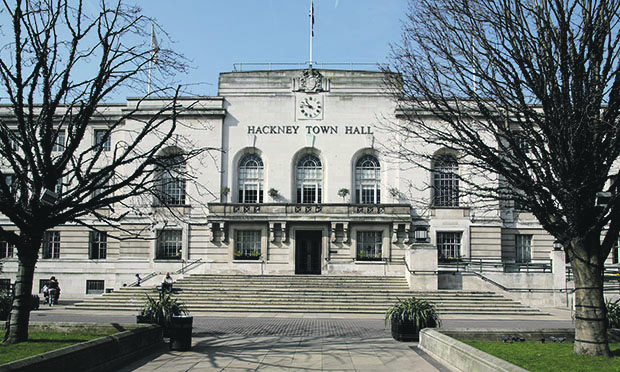Town Hall told to apologise to mother for botched social services assessment

The Town Hall has been told to apologise and pay £450 to a mother left “shocked and upset” following a botched assessment carried out on her and her daughter by social services.
The Local Government and Social Care Ombudsman (LGSCO) also recommended in its report that the council’s procedures be changed to ensure that parents, where appropriate, are asked for consent prior to such assessments.
The report identifies a series of faults and errors in how the assessment of the mother and child, referred to as Ms J and K, was carried out, as well as how her own complaints on the matter were handled, all of which were found to have caused “time, trouble and distress” by the watchdog.
The LGSCO investigator said: “The failure to ask Ms J at the outset whether she would give consent to the council to carry out an assessment is fault and it led to distress for Ms J as the complaint would have been avoided had the council done so.
“Failure to check family information before the assessment and then failing to clarify information received before the social worker left the family home caused Ms J time, trouble and distress.
“The council offered Ms J £450, which is in line with our guidance. We are not a compensatory body so any request for compensation would have to go through the court.”
According to the report, Ms J had been seeing a counsellor, who had suggested her case be referred to the Town Hall who could then pay for her counselling, a course of action which Ms J said she felt “coerced” into agreeing to.
Unbeknownst to Ms J at the time, the counsellor’s referral alleged that her child, K, was “potentially at risk from her”, and suggested the council should become involved.
On receiving the referral, the council decided to carry out an assessment on Ms J, who, when she was provided with a summary of the counsellor’s report was “concerned to read information that she says was incorrect”.
The mum then received a letter quoting the first name of another party’s child, which acknowledged that the assessment was not mandatory.
Despite Ms J saying she wanted to withdraw consent for the council to become involved, she “reluctantly” agreed for the process to continue following a conversation with the manager of the officer who had sent the letter.
The report reads: “When she spoke to the manager of the officer who sent this, she says he suggested she would want to continue in order to ‘clear her name’ and get closure.
“The manager has told me he did not say this. On the balance of probabilities, however, given her strength of feeling Ms J would not have wanted to continue unless she felt the assessment would exonerate her.”
The account of the interaction between Ms J and the council goes on to reveal that the officer spoke to the child thinking incorrectly that they were six years old, rather than four.
The mum was quizzed as to why K was still in pull-up pants at night at the time of her visit, which the LGSCO notes is “not unusual, given his age”, with the officer going on to emerge from a one-on-one interview with K to tell his mum that he had been assaulted by a teacher, necessitating an investigation.
The LGSCO adds: “Once the officer left, Ms J spoke to K who, she says, was quite shaken. K reported the ‘assault’ was by a friend in the playground and not a teacher.
“Ms J called the officer who said she would return to their house. When the officer arrived, according to Ms J she said to K, ‘You can tell us the truth – don’t be afraid’, which Ms J thought was patronising and unnecessary, although the officer disputes this.
“Upon hearing what K had to say, the officer confirmed there would be no safeguarding investigation and left.”
It is understood that the officer’s manager later apologised, partly blaming what had happened on the level of the worker’s caseload.
However, the mother decided to make a complaint following this explanation, saying that it left her feeling “manipulated”, with the LGSCO later finding this exchange to have been a fault on the part of the council, saying that “officers should conduct their work to a high standard irrespective of their caseloads”.
The council has now been asked to alter its procedures after the ombudsman pointed out that if the Town Hall had been open around the issue of consent, the complaint would not have occurred.
The report concludes: “Ms J should not have been told (or been given the impression) that an assessment might ‘clear her name’ or provide closure – she should have been told the facts of the case and that refusing to continue would not result in any further action.
“On the balance of probabilities, I consider this is fault given I do not see Ms J would have continued with the assessment unless she was convinced she would somehow benefit.”
The Town Hall’s service was also admonished for not having the correct information on K’s age ahead of the interview, adding that “knowing a child’s age is critical”, before going on to stress that the relaying of the alleged assault by the child’s teacher without properly checking the information was fault by the council, leaving Ms J “understandably shocked and upset… especially when she found it was untrue”.
A Hackney Council spokesperson said: “We recognise the concerns detailed in the LGSCO’s findings and have taken prompt steps to ensure that recommendations have been implemented.
“Following the ombudsman’s decision, we have apologised to Ms J and provided her with a financial settlement. We have also changed our assessment procedures to ensure that, where appropriate, parents are asked for consent prior to assessments taking place.”
